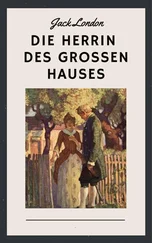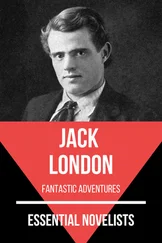Jack London - John Barleycorn
Здесь есть возможность читать онлайн «Jack London - John Barleycorn» весь текст электронной книги совершенно бесплатно (целиком полную версию без сокращений). В некоторых случаях можно слушать аудио, скачать через торрент в формате fb2 и присутствует краткое содержание. Жанр: Классическая проза, на английском языке. Описание произведения, (предисловие) а так же отзывы посетителей доступны на портале библиотеки ЛибКат.
- Название:John Barleycorn
- Автор:
- Жанр:
- Год:неизвестен
- ISBN:нет данных
- Рейтинг книги:3 / 5. Голосов: 1
-
Избранное:Добавить в избранное
- Отзывы:
-
Ваша оценка:
- 60
- 1
- 2
- 3
- 4
- 5
John Barleycorn: краткое содержание, описание и аннотация
Предлагаем к чтению аннотацию, описание, краткое содержание или предисловие (зависит от того, что написал сам автор книги «John Barleycorn»). Если вы не нашли необходимую информацию о книге — напишите в комментариях, мы постараемся отыскать её.
John Barleycorn — читать онлайн бесплатно полную книгу (весь текст) целиком
Ниже представлен текст книги, разбитый по страницам. Система сохранения места последней прочитанной страницы, позволяет с удобством читать онлайн бесплатно книгу «John Barleycorn», без необходимости каждый раз заново искать на чём Вы остановились. Поставьте закладку, и сможете в любой момент перейти на страницу, на которой закончили чтение.
Интервал:
Закладка:
And then there was the matter of typewriting. My brother-in-law owned a machine which he used in the day-time. In the night I was free to use it. That machine was a wonder. I could weep now as I recollect my wrestlings with it. It must have been a first model in the year one of the typewriter era. Its alphabet was all capitals. It was informed with an evil spirit. It obeyed no known laws of physics, and overthrew the hoary axiom that like things performed to like things produce like results. I'll swear that machine never did the same thing in the same way twice. Again and again it demonstrated that unlike actions produce like results.
How my back used to ache with it! Prior to that experience, my back had been good for every violent strain put upon it in a none too gentle career. But that typewriter proved to me that I had a pipe-stem for a back. Also, it made me doubt my shoulders. They ached as with rheumatism after every bout. The keys of that machine had to be hit so hard that to one outside the house it sounded like distant thunder or some one breaking up the furniture. I had to hit the keys so hard that I strained my first fingers to the elbows, while the ends of my fingers were blisters burst and blistered again. Had it been my machine I'd have operated it with a carpenter's hammer.
The worst of it was that I was actually typing my manuscripts at the same time I was trying to master that machine. It was a feat of physical endurance and a brain storm combined to type a thousand words, and I was composing thousands of words every day which just had to be typed for the waiting editors.
Oh, between the writing and the typewriting I was well a-weary. I had brain and nerve fag, and body fag as well, and yet the thought of drink never suggested itself. I was living too high to stand in need of an anodyne. All my waking hours, except those with that infernal typewriter, were spent in a creative heaven. And along with this I had no desire for drink because I still believed in many thingsin the love of all men and women in the matter of man and woman love; in fatherhood; in human justice; in artin the whole host of fond illusions that keep the world turning around.
But the waiting editors elected to keep on waiting. My manuscripts made amazing round-trip records between the Pacific and the Atlantic . It might have been the weirdness of the typewriting that prevented the editors from accepting at least one little offering of mine. I don't know, and goodness knows the stuff I wrote was as weird as its typing. I sold my hard-bought school books for ridiculous sums to second-hand bookmen. I borrowed small sums of money wherever I could, and suffered my old father to feed me with the meagre returns of his failing strength.
It didn't last long, only a few weeks, when I had to surrender and go to work. Yet I was unaware of any need for the drink anodyne. I was not disappointed. My career was retarded, that was all. Perhaps I did need further preparation. I had learned enough from the books to realise that I had only touched the hem of knowledge's garment. I still lived on the heights. My waking hours, and most of the hours I should have used for sleep, were spent with the books.
CHAPTER XXIV
Out in the country, at the Belmont Academy , I went to work in a small, perfectly appointed steam laundry. Another fellow and myself did all the work from sorting and washing to ironing the white shirts, collars and cuffs, and the "fancy starch" of the wives of the professors. We worked like tigers, especially as summer came on and the academy boys took to the wearing of duck trousers. It consumes a dreadful lot of time to iron one pair of duck trousers. And there were so many pairs of them. We sweated our way through long sizzling weeks at a task that was never done; and many a night, while the students snored in bed, my partner and I toiled on under the electric light at steam mangle or ironing board.
The hours were long, the work was arduous, despite the fact that we became past masters in the art of eliminating waste motion. And I was receiving thirty dollars a month and boarda slight increase over my coal-shovelling and cannery days, at least to the extent of board, which cost my employer little (we ate in the kitchen), but which was to me the equivalent of twenty dollars a month. My robuster strength of added years, my increased skill, and all I had learned from the books, were responsible for this increase of twenty dollars. Judging by my rate of development, I might hope before I died to be a night watchman for sixty dollars a month, or a policeman actually receiving a hundred dollars with pickings.
So relentlessly did my partner and I spring into our work throughout the week that by Saturday night we were frazzled wrecks. I found myself in the old familiar work-beast condition, toiling longer hours than the horses toiled, thinking scarcely more frequent thoughts than horses think. The books were closed to me. I had brought a trunkful to the laundry, but found myself unable to read them. I fell asleep the moment I tried to read; and if I did manage to keep my eyes open for several pages, I could not remember the contents of those pages. I gave over attempts on heavy study, such as jurisprudence, political economy, and biology, and tried lighter stuff, such as history. I fell asleep. I tried literature, and fell asleep. And finally, when I fell asleep over lively novels, I gave up. I never succeeded in reading one book in all the time I spent in the laundry.
And when Saturday night came, and the week's work was over until Monday morning, I knew only one desire besides the desire to sleep, and that was to get drunk. This was the second time in my life that I had heard the unmistakable call of John Barleycorn. The first time it had been because of brain-fag. But I had no over-worked brain now. On the contrary, all I knew was the dull numbness of a brain that was not worked at all. That was the trouble. My brain had become so alert and eager, so quickened by the wonder of the new world the books had discovered to it, that it now suffered all the misery of stagnancy and inaction.
And I, the long time intimate of John Barleycorn, knew just what he promised memaggots of fancy, dreams of power, forgetfulness, anything and everything save whirling washers, revolving mangles, humming centrifugal wringers, and fancy starch and interminable processions of duck trousers moving in steam under my flying iron. And that's it. John Barleycorn makes his appeal to weakness and failure, to weariness and exhaustion. He is the easy way out. And he is lying all the time. He offers false strength to the body, false elevation to the spirit, making things seem what they are not and vastly fairer than what they are.
But it must not be forgotten that John Barleycorn is protean. As well as to weakness and exhaustion, does he appeal to too much strength, to superabundant vitality, to the ennui of idleness. He can tuck in his arm the arm of any man in any mood. He can throw the net of his lure over all men. He exchanges new lamps for old, the spangles of illusion for the drabs of reality, and in the end cheats all who traffic with him.
I didn't get drunk, however, for the simple reason that it was a mile and a half to the nearest saloon. And this, in turn, was because the call to get drunk was not very loud in my ears. Had it been loud, I would have travelled ten times the distance to win to the saloon. On the other hand, had the saloon been just around the corner, I should have got drunk. As it was, I would sprawl out in the shade on my one day of rest and dally with the Sunday papers. But I was too weary even for their froth. The comic supplement might bring a pallid smile to my face, and then I would fall asleep.
Although I did not yield to John Barleycorn while working in the laundry, a certain definite result was produced. I had heard the call, felt the gnaw of desire, yearned for the anodyne. I was being prepared for the stronger desire of later years.
Читать дальшеИнтервал:
Закладка:
Похожие книги на «John Barleycorn»
Представляем Вашему вниманию похожие книги на «John Barleycorn» списком для выбора. Мы отобрали схожую по названию и смыслу литературу в надежде предоставить читателям больше вариантов отыскать новые, интересные, ещё непрочитанные произведения.
Обсуждение, отзывы о книге «John Barleycorn» и просто собственные мнения читателей. Оставьте ваши комментарии, напишите, что Вы думаете о произведении, его смысле или главных героях. Укажите что конкретно понравилось, а что нет, и почему Вы так считаете.











